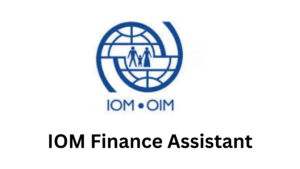
Table of Contents
In today’s interconnected world, working abroad is a great way to enhance your career. Many professionals look for opportunities or jobs overseas to secure better wages and provide for their families. These earnings often cover living expenses, children’s education, utility bills, and more.
However, it’s essential to be cautious about the kind of job you accept when working abroad. Some positions come with significant risks and challenges that could make you regret your decision. In this article, we’ll highlight five types of jobs you should steer clear of when considering work abroad.
1. Cold Room/Storage Jobs
Working in cold storage, such as freezers or refrigerated warehouses, is highly risky and can lead to severe injuries or even death if proper precautions are not followed.
Risks of Working in Cold Storage:
- Exposure to extreme cold: Human bodies can only tolerate a limited range of temperatures, and working in sub-zero conditions for long periods without adequate protection can cause hypothermia or frostbite.
- Entrapment: Workers may get trapped in cold rooms, which could lead to life-threatening situations, especially without proper oxygen levels.
- Slips, trips, and falls: Cold, damp environments often lead to accidents, putting workers at risk of injury.
Prolonged exposure to freezing conditions can cause numbness in various parts of the body and negatively impact physical performance, making it a job to avoid.
💬 Get Paid in Dollars Just by Chatting With Lonely People
Imagine earning daily dollar income from anywhere in the world — no degree, no experience, no interviews — just your phone or laptop.
People are getting paid simply to chat, listen, and keep others company online. This short ebook reveals:
- ✔ Legit platforms that pay in USD
- ✔ How Africans can register & withdraw successfully
- ✔ What to say to keep conversations paid
- ✔ How beginners start with zero experience
Instant download • Works worldwide • Beginner-friendly
2. Chemical Production Jobs
The chemical industry plays a crucial role in producing essential products for agriculture, pharmaceuticals, and consumer goods. However, working in chemical production can be hazardous.
Key Dangers in Chemical Production:
- System Failures: Equipment malfunctions or human error can result in the release of dangerous chemicals, posing serious health risks to workers.
- Natural Disasters: Chemical plants in areas prone to earthquakes, floods, or other disasters are vulnerable to accidents, such as explosions or hazardous leaks.
- Poor Waste Management: Improper handling of toxic waste can lead to long-term health complications for employees.
Given the high stakes, working in chemical production requires extreme caution and attention to safety protocols.
3. Dishwasher Jobs
While dishwashing may seem like an easy job, it often comes with several drawbacks, especially for those seeking work abroad.
Challenges Faced by Dishwashers:
- Long Hours: Many dishwashing jobs require working extended shifts, sometimes up to 12 hours, often late into the night or during holidays.
- Low Pay: Dishwashers are often underpaid, making it a difficult position to sustain financially.
- Unpleasant Conditions: The job typically involves working in smelly, wet environments, which can be both physically and mentally draining.
Dishwashing may seem simple, but the demands and low compensation make it less than ideal for those looking to build a better life abroad.
4. Night Shift Jobs
Night shifts are notorious for disrupting a person’s natural rhythm, leading to a wide range of physical and mental health issues.
Impact of Night Shifts on Health:
- Sleep Disruption: Working nights leads to poor sleep quality and shorter sleep durations, which can result in chronic sleep deprivation.
- Mental Health Issues: Sleep disruption often causes fatigue, anxiety, and depression. Night shift workers are more prone to mood disorders and psychological stress.
- Heart and Cancer Risks: Studies suggest night shift workers are at a higher risk of developing cardiovascular diseases and certain types of cancer.
The toll that night shifts take on your body and mind should not be underestimated. For those seeking a sustainable and healthy work-life balance abroad, night shift jobs are best avoided.
5. Construction Jobs in Hazardous Conditions
While construction work can be well-paying, it also involves significant physical risks, especially when safety standards are not strictly enforced.
Risks in Construction Jobs:
- Exposure to Dangerous Machinery: Improper handling of heavy machinery can result in serious injuries or fatalities.
- Lack of Safety Gear: Some countries may not provide adequate safety equipment, increasing the likelihood of accidents.
- Harsh Weather Conditions: Workers often have to perform physically demanding tasks in extreme weather, further compounding the risks involved.
The combination of physical strain and safety risks makes certain construction jobs particularly dangerous for workers abroad.
Conclusion
When exploring job opportunities abroad, it’s crucial to research thoroughly and make informed decisions. Avoiding jobs with significant risks will protect your health and ensure that your overseas experience is both rewarding and safe. Consider learning digital skills that offer higher-paying, safer jobs, and always prioritize your well-being in your career choices.
For more information, you can read this article by Forbes
See also:
Valencia College Global Achievers Scholarship 2025/2026 for International Students: Apply Now!
Coca-Cola Scholarship 2024–25: Apply Now!
The University of Turin Scholarships 2024/25 in Italy: Apply Now!
🔥 Want to Make Money Online the Right Way?
Discover how smart people are quietly earning with AI, Email Marketing, CPA, LinkedIn, Online Teaching & Content Creation.
This is not theory — it’s a step-by-step system.
👉 Get the Ebook Now










